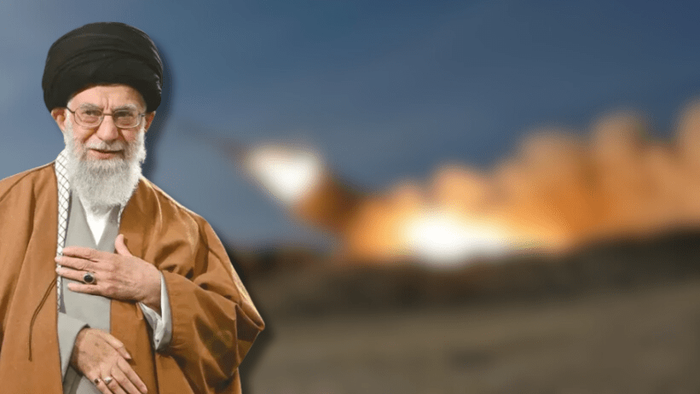Iranian Supreme Leader Ayatollah Ali Khamenei has issued a stern warning directed at the United States and Israel, amid ongoing tensions following a significant early morning airstrike by the Israeli Air Force (IAF) that targeted Iranian military sites. Speaking to a gathering of students commemorating the anniversary of the 1979 takeover of the US embassy in Tehran, Khamenei declared that the enemies of Iran, specifically referring to “the Zionist regime” and the US, would face a “crushing response” for their actions against Iran and its resistance. This statement, made by the 85-year-old cleric, underscores the heightened rhetoric between Iran and its adversaries, even as it remains unclear whether Iran is actively preparing to retaliate militarily.
Khamenei’s remarks were met with enthusiastic support from his audience, who expressed their loyalty through chants. However, he previously emphasized the need for a measured response to the Israeli airstrike, indicating that it should neither be exaggerated nor understated. This cautious approach suggests that while Iranian leadership may be weighing options for retaliation, Khamenei is also advocating for a strategic consideration of how to respond. Reports from Axios highlight the belief among some regional observers that a major retaliatory action is still on the table for Iran, particularly in light of the recent strikes on its military facilities, which were viewed as an inevitable counter to prior provocations.
The context of these developments includes ongoing speculation about Iranian capabilities and intentions in the region. Some Israeli intelligence sources suggest that Iran may be preparing to launch attacks on Israel from Iraqi territory, potentially utilizing a combination of drones and ballistic missiles. Although Iranian-backed paramilitary units in Iraq have conducted sporadic drone launches during the ongoing Gaza conflict, no substantial offensive has been observed thus far. This situation is compounded by claims from reports of Iranian missiles being repositioned in readiness for possible strikes against Israel. Khamenei’s rhetoric, along with statements from Iranian military leaders, signal an intention to respond decisively, albeit in a manner that may catch Israel off guard.
Israeli Prime Minister Benjamin Netanyahu has reacted to these developments by hinting at potential preemptive measures against Iran’s nuclear program. In remarks made following Khamenei’s speech, Netanyahu asserted that the principal goal of Israel’s military and intelligence services remains preventing Iran from obtaining nuclear weapons. He communicated a resolute stance that halting Iran’s nuclear ambitions has consistently been Israel’s foremost objective, indicating that this remains a central concern for the Israeli government. Netanyahu’s declarations highlight a broader strategy that may prioritize addressing nuclear threats in the regional security calculus, further complicating the already tense environment.
Despite the escalating verbiage and heightened military posture from both Iran and Israel, analysts suggest that a full-scale escalation is unlikely in the immediate future. The ongoing US electoral cycle could serve as a moderating factor, as both sides may be hesitant to initiate significant military actions that could lead to wider conflict, particularly with the US elections approaching. The context of domestic and international politics often influences military decision-making, giving both nations reasons to engage in posturing rather than open confrontation at this juncture.
As both Iran and Israel remain entrenched in a cycle of reciprocal threats and military readiness, the situation continues to evolve. The interplay of rhetoric, military capabilities, and international politics will play a pivotal role in shaping future actions. While the potential for escalation remains, the immediate outcome may lean toward continued tension and strategic caution as both nations navigate an intricate landscape of military, political, and diplomatic challenges leading up to critical events, including the US elections. The coming days and weeks will be crucial in determining whether diplomatic channels can mitigate tensions or whether the conflict will escalate into a more direct confrontation.

